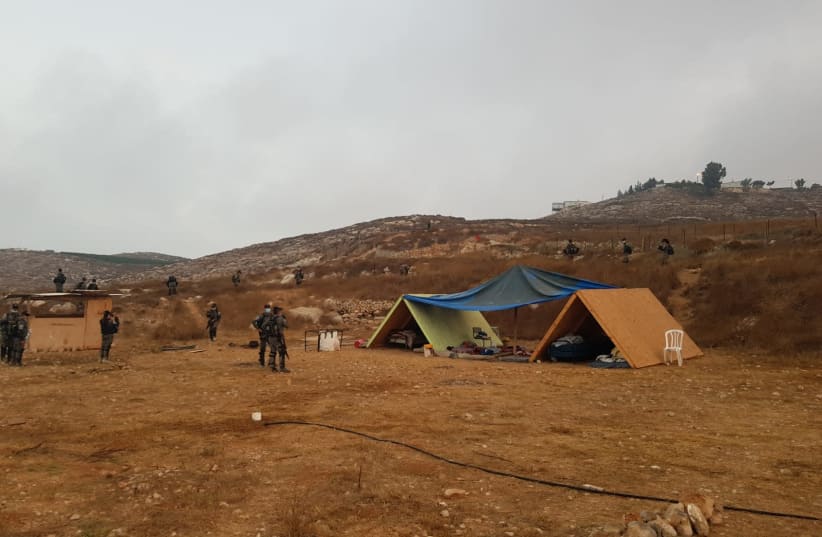Israel's Supreme Court released three Border Policemen to house arrest to await the results of their trial, a month after they were arrested for the armed robbery, breach of trust and assault of Palestinian citizens.
The three policemen join two other defendants, who had already been released to house arrest while awaiting trial in the past few weeks.
According to the indictment, the five Border policemen would routinely and violently rob and assault Palestinians who moved through the Meitar checkpoint near southern Hebron.
The controversial decision comes after shocking videos, taken by the five policemen themselves, surfaced on social media. In the videos, the officers can be seen beating and humiliating a series of Palestinian men, kicking them and stepping on their faces as they are tied up on the ground, even forcing one man to strip and run naked toward the border while his face is covered in blood.
When the indictment was originally filed, one of the policemen was released under restrictive conditions while the rest were sent to jail to await the trial. Another man was released to house arrest this past Sunday, while the defense still argued that the other three have to stay locked up.
However, Judge Yoel Eden decided, in spite of those arguments, to release the remaining three to house arrest as well, claiming that while the men pose a clear danger to society, the danger itself is tightly linked with the power and authority they possessed as on-duty policemen.
State attorneys filed an appeal to the Supreme Court, but Justice Menachem "Meni" Mazuz rejected it, deciding to allow the three policemen to leave the lock-up for house arrest.
Mazuz, however, placed more strict conditions on the three, upping their bail to NIS 20,000 each and confiscating their passports to ensure they don't leave the state.
"Once the defendants were stripped of their uniforms, status and powers as border police officers, and deprived of their weapons and authorities – which were the means used to enable the offenses they committed – it is difficult to pinpoint the danger posed by them, which can be nullified by full house arrest," Mazuz determined. "This is also taking into account the fact that the defendants have no previous criminal record."
Mazuz added that "the claim that the 'behavioral patterns' of the defendants establish a danger even outside of the framework of their activities as border police officers, is a general claim that is not supported by any evidence, and in any case cannot be used to determine danger for arrest."
